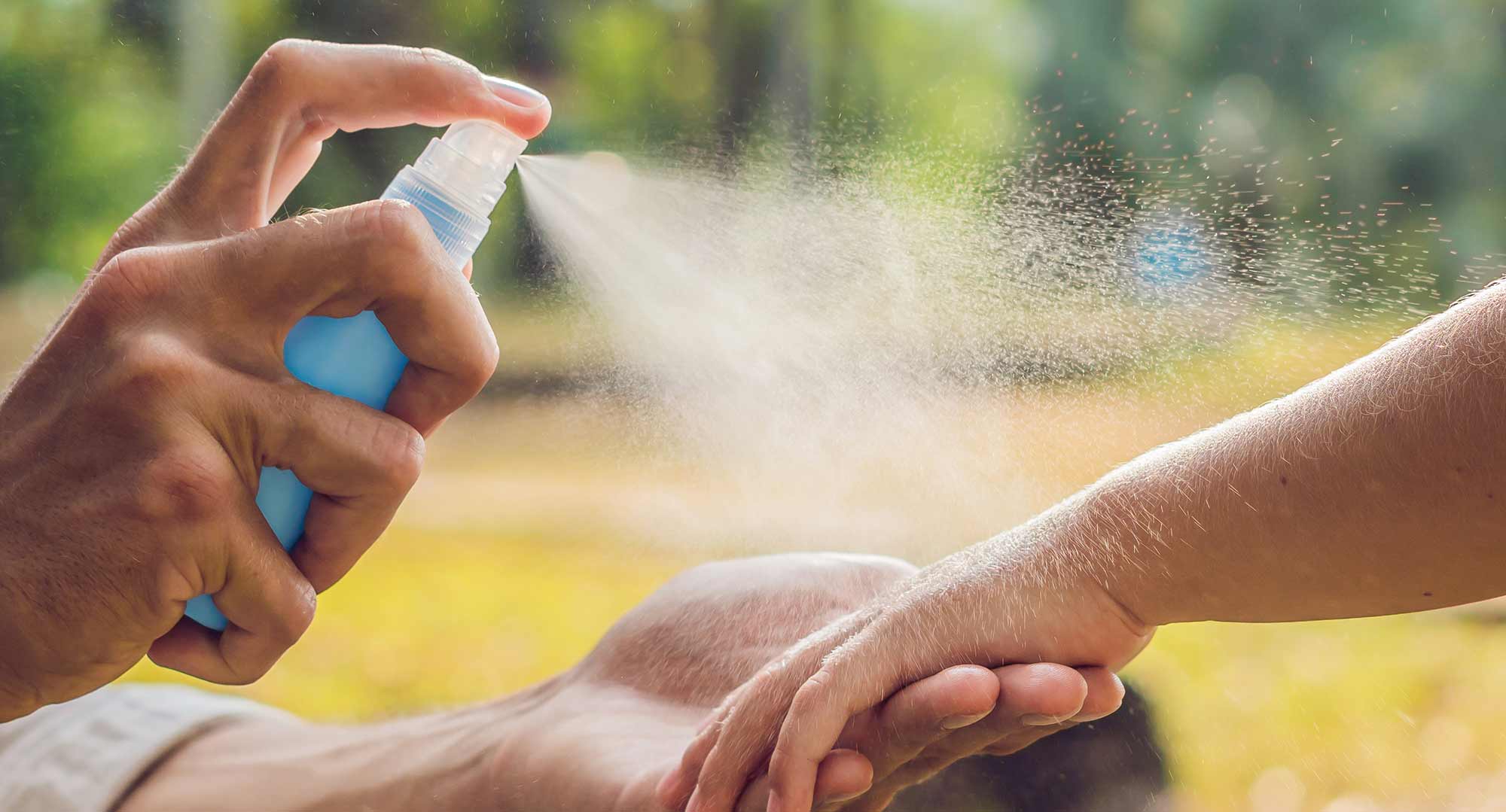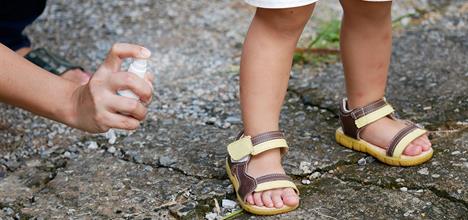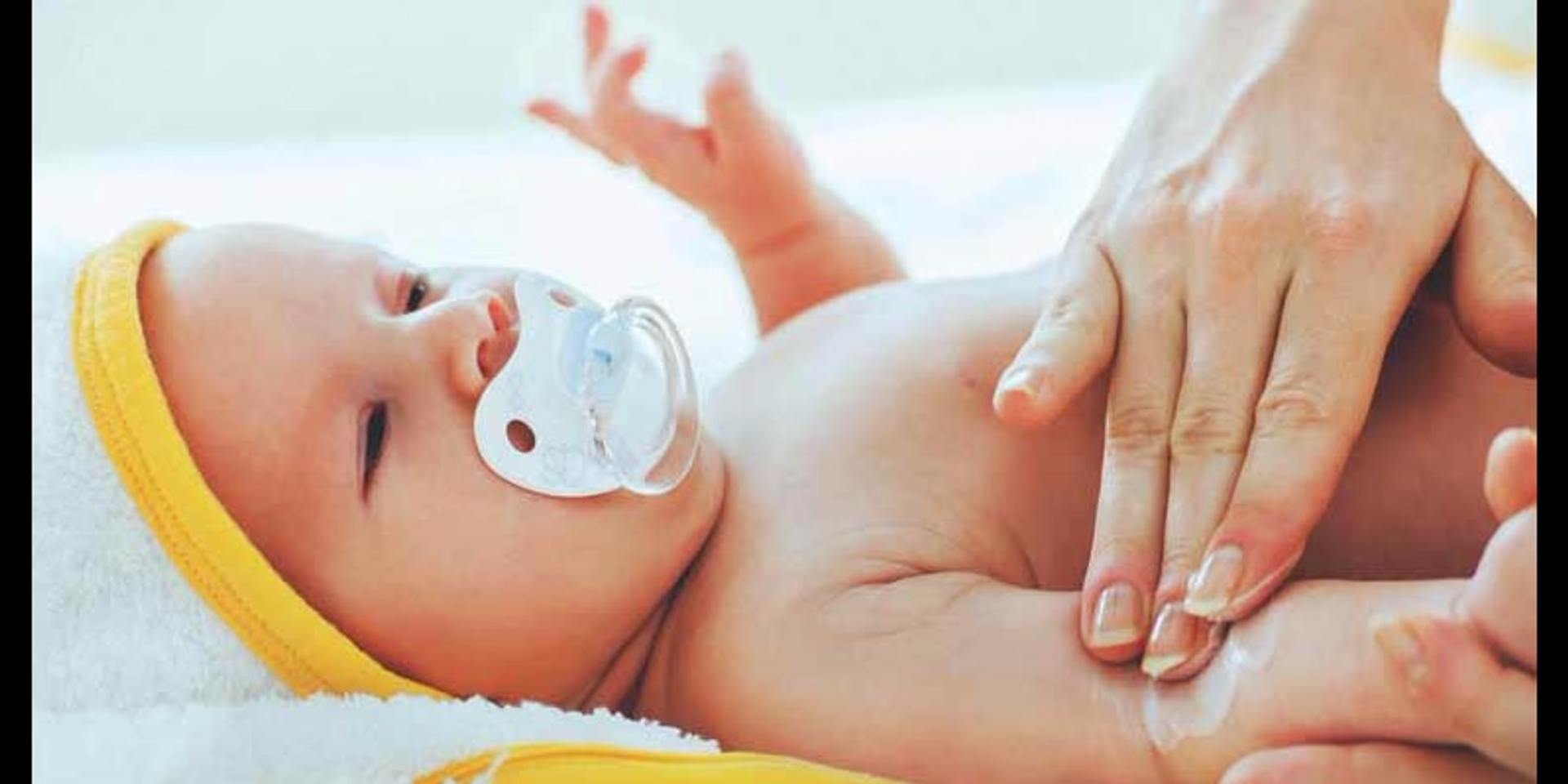Mosquito Repellent for Newborns
Looking for safe mosquito repellent for newborns in Canada?
You're not alone. With mosquito season lasting from May through September across Canada, protecting your infant from bites is a top priority for new parents. The good news is that there are several safe and effective options specifically designed for newborns' delicate skin.
Mosquitoes can be more than just a nuisance for newborns. Their bites can cause discomfort, allergic reactions, and even transmit diseases. Protecting your infant from these pests is crucial for their health and comfort.
Choosing the right mosquito repellent for newborns can be challenging. Parents need to ensure both safety and effectiveness while considering their baby's sensitive skin and developing immune system.
This guide will help you navigate the choices available to Canadian parents. Learn about safe and effective mosquito repellent options that provide protection without compromising your baby's health.
Why Protecting Newborns from Mosquitoes Is Important
Newborns are particularly vulnerable to mosquito bites due to their developing immune systems and delicate skin. In Canada, mosquitoes can transmit diseases like West Nile virus, which poses serious health risks to infants.
Mosquito bites can lead to allergic reactions, causing significant discomfort for babies. The resulting redness, swelling, and itching can disrupt sleep patterns and cause distress for both baby and parents.
Key reasons to protect your newborn from mosquitoes:
- Mosquito-borne diseases like West Nile virus can be serious for infants
- Newborns may develop skin infections from scratching bites
- Prevention is easier and safer than treating potential complications
- Protecting sleep quality is essential for healthy infant development
By taking preventive steps, you safeguard your baby's health and well-being while ensuring peaceful nights for the entire family.
Are Mosquito Repellents Safe for Newborns?
The safety of mosquito repellents on newborns depends heavily on the ingredients and concentration. Health Canada and pediatric experts recommend specific guidelines for infant-safe mosquito protection products.
Newborns have extremely sensitive skin that can react to harsh chemicals. Products with high concentrations of active ingredients can cause irritation, allergic reactions, or other adverse effects. This is why choosing repellents specifically formulated for infants is crucial.
When considering mosquito repellent for newborns, follow these safety guidelines:
- Choose products with low-concentration DEET (10% or less) or Picaridin
- Avoid applying repellent on infant's hands, eyes, mouth, or any broken skin
- Always follow product instructions and age recommendations
- Consult your pediatrician before using any new repellent on your baby
Remember that infants under 2 months old should not use DEET-based products according to Health Canada guidelines. For these youngest babies, physical protection methods are recommended.

Types of Mosquito Repellents for Infants
Selecting the right mosquito repellent for infants involves understanding the different options available to Canadian parents. Each type of repellent has unique benefits and considerations when used for babies with sensitive skin.
The main categories include chemical repellents, natural plant-based options, and non-chemical protection methods. Understanding these categories helps parents make informed decisions based on their comfort level and their baby's specific needs.
When choosing a repellent, consider factors like effectiveness duration, potential side effects, application method, and your infant's age. What works for one family may not be suitable for another.
Common types of mosquito repellents for infants include:
- Chemical repellents like DEET and Picaridin (for appropriate ages)
- Natural and plant-based options such as essential oil formulations
- Non-chemical methods like mosquito nets and protective clothing
- Combination approaches using multiple protection strategies
Chemical Repellents: DEET and Picaridin
Chemical repellents such as DEET and Picaridin are among the most effective options for mosquito protection. However, they require careful consideration when used on newborns and infants due to their potency.
DEET (N,N-diethyl-meta-toluamide) is highly effective but should be used cautiously on babies. Health Canada recommends DEET products with concentrations of 10% or less for children over 2 months old. For newborns under 2 months, DEET is not recommended.
Picaridin is often considered a gentler alternative to DEET while providing comparable protection. It's less likely to cause skin irritation and has a more pleasant feel on the skin, making it a preferred choice for many parents.
Guidelines for using chemical repellents safely:
- Choose products with 10% or less DEET for infants over 2 months
- Apply sparingly and only to exposed skin, avoiding face and hands
- Never apply over cuts, wounds, or irritated skin
- Wash off repellent when protection is no longer needed
- Store products safely away from children
Natural and Plant-Based Repellents
Natural and plant-based repellents often appeal to parents seeking gentler alternatives for their newborns. These products typically contain essential oils like citronella, eucalyptus, lavender, or lemon balm.
While natural doesn't automatically mean safer for babies, properly formulated natural repellents can provide effective protection with fewer concerns about harsh chemicals. However, essential oils can still cause allergic reactions in sensitive individuals.
When considering natural repellents, dilution and proper formulation are crucial. Pure essential oils should never be applied directly to infant skin and must be properly diluted in carrier oils or incorporated into baby-safe formulations.
Key considerations for natural repellents:
- Choose products specifically formulated and tested for infant use
- Perform patch tests before widespread application
- Be aware that natural products may require more frequent reapplication
- Look for products that list all ingredients clearly
- Understand that effectiveness may vary compared to chemical options
Non-Chemical Mosquito Protection for Newborns
Non-chemical methods provide the safest approach to protecting newborns from mosquitoes, especially for babies under 2 months old. These strategies create physical barriers without exposing delicate skin to potentially irritating substances.
Physical protection methods are highly effective and completely safe for newborns of any age. They can be easily integrated into daily routines and provide peace of mind for parents concerned about using topical products on their baby's sensitive skin.
Mosquito nets remain one of the most effective non-chemical protection methods. They create an impenetrable barrier when properly installed and maintained. Modern nets are lightweight, breathable, and easy to use with cribs, strollers, and carriers.

Effective non-chemical protection strategies include:
- Using fine-mesh mosquito nets over cribs, strollers, and play areas
- Dressing infants in lightweight, long-sleeved clothing and pants
- Keeping windows and doors screened or closed during peak mosquito times
- Using fans to create airflow, which mosquitoes find difficult to navigate
- Eliminating standing water around your home to reduce mosquito breeding
- Timing outdoor activities to avoid dawn and dusk when mosquitoes are most active
How to Safely Use Mosquito Repellent on Newborns
Using mosquito repellent safely on newborns requires careful attention to product selection, application method, and safety precautions. Always start by choosing products specifically labeled as safe for infants and appropriate for your baby's age.
Proper application technique is crucial for both safety and effectiveness. Never spray repellent directly onto your baby's skin. Instead, apply the product to your own hands first, then gently spread it on your baby's exposed skin, avoiding sensitive areas.
Before using any new repellent, perform a patch test on a small area of your baby's skin to check for allergic reactions. Wait 24 hours to ensure no irritation develops before applying the product more broadly.
Essential safety precautions when using repellent on newborns:
- Never apply repellent to baby's face, hands, eyes, mouth, or genitals
- Avoid application over cuts, wounds, or irritated skin
- Use the minimum amount necessary for protection
- Wash treated skin with soap and water when indoors
- Store repellent products safely away from children
- Stop use immediately if any irritation or allergic reaction occurs
Always consult your pediatrician before introducing any new repellent product, especially if your baby has sensitive skin or known allergies.
Tips for Preventing Mosquito Bites in Babies
Preventing mosquito bites in newborns requires a comprehensive approach combining multiple protection strategies. The most effective prevention plans layer different methods to create maximum protection with minimal risk.
Timing is crucial when protecting babies from mosquitoes. Mosquitoes are most active during dawn and dusk, so planning indoor activities during these peak times significantly reduces exposure risk.
Environmental modifications around your home can dramatically reduce mosquito populations. Eliminating breeding sites and creating less attractive environments for mosquitoes protects your entire family, not just when you're applying repellent.
Comprehensive mosquito bite prevention strategies:
- Keep babies indoors during dawn and dusk peak mosquito activity periods
- Dress infants in light-colored, lightweight, long-sleeved clothing
- Use mosquito nets over cribs, strollers, and outdoor play areas
- Install and maintain window and door screens
- Remove standing water from flower pots, bird baths, and gutters
- Use fans in outdoor seating areas to create airflow
- Keep grass and vegetation trimmed around your home
- Consider professional mosquito control treatments for your yard
What to Avoid When Choosing Mosquito Repellent for Newborns
Selecting appropriate mosquito repellent for newborns means knowing which products and ingredients to avoid. Some commonly available repellents contain ingredients that are too harsh for infant skin or inappropriate for babies under certain ages.
High-concentration DEET products should be avoided for infants. Products containing more than 10% DEET are not recommended for babies, and any DEET-containing product should not be used on infants under 2 months old according to Health Canada guidelines.
Combination products that mix sunscreen with insect repellent are not recommended for babies. These products can lead to over-application of either sunscreen or repellent and may not provide optimal protection for either purpose.
Products and ingredients to avoid for newborns:
- High-concentration DEET products (over 10%)
- Any DEET products for babies under 2 months old
- Strongly scented or heavily fragranced repellents
- Combination sunscreen-insect repellent products
- Products not specifically labeled for infant use
- Repellents containing permethrin (for clothing treatment only, not skin)
- Essential oil products without proper dilution information
- Aerosol sprays that could be inhaled by babies
When in doubt about a product's safety, always consult your pediatrician before use. It's better to use physical protection methods than risk using an inappropriate product on your newborn.

Frequently Asked Questions About Mosquito Repellent for Newborns
What is the safest mosquito repellent for newborns under 2 months?
For newborns under 2 months old, non-chemical protection methods are safest. Use mosquito nets, protective clothing, and environmental controls rather than topical repellents. DEET-based products are not recommended for babies this young according to Health Canada guidelines.
Can I use natural mosquito repellent on my newborn?
Natural repellents can be used on newborns if they're specifically formulated for infant use and properly diluted. However, "natural" doesn't automatically mean safe for babies. Always choose products labeled for infants and perform patch tests before widespread use.
How often should I apply mosquito repellent to my baby?
Follow the specific reapplication instructions on your chosen product. Generally, reapply only as often as directed on the label, and wash off repellent when your baby comes indoors or when protection is no longer needed.
What should I do if my baby has a reaction to mosquito repellent?
If your baby shows signs of skin irritation, rash, or allergic reaction, immediately wash the treated area with soap and water. Stop using the product and contact your pediatrician for guidance, especially if symptoms are severe or persistent.
Are mosquito repellent wristbands safe for newborns?
Repellent wristbands are generally considered safer than topical applications since they don't directly contact large areas of skin. However, effectiveness is often limited, and babies should not be able to reach or chew on the bands. They work best as part of a comprehensive protection strategy.
Can I use mosquito repellent on my baby's clothing instead of skin?
Yes, applying repellent to clothing rather than skin is often safer for babies. Some products are specifically designed for clothing treatment. This method reduces direct skin contact while still providing protection. Ensure the product is appropriate for fabric application.
Conclusion: Keeping Your Newborn Safe from Mosquitoes
Protecting newborns from mosquito bites requires careful planning and the right combination of safe, effective strategies. Canadian parents have multiple options available, from non-chemical physical barriers to specially formulated infant-safe repellents.
For the youngest babies under 2 months old, non-chemical protection methods like mosquito nets, protective clothing, and environmental controls provide the safest approach. As babies grow, additional options like low-concentration DEET or Picaridin products become available under pediatric guidance.
Remember that the most effective mosquito protection combines multiple strategies rather than relying on a single method. Layer physical barriers, environmental controls, and appropriate repellents to create comprehensive protection for your baby.
Always prioritize safety over convenience when protecting your newborn from mosquitoes. When in doubt, consult your pediatrician about the best protection strategies for your baby's specific needs and circumstances. With the right approach, you can keep your little one comfortable and protected throughout Canada's mosquito season.
This post is also available in: Français (French)